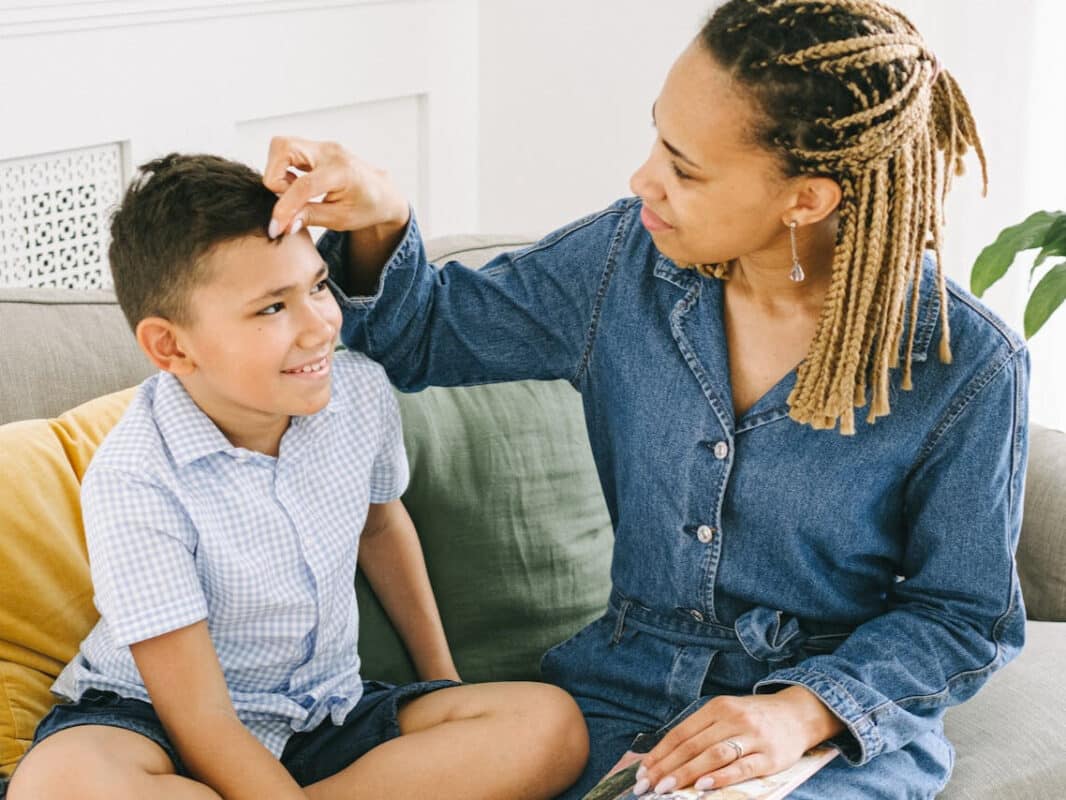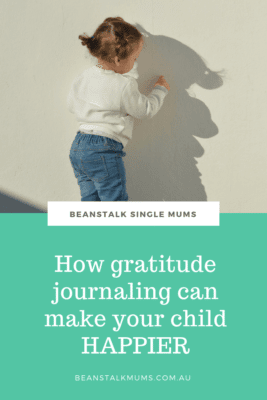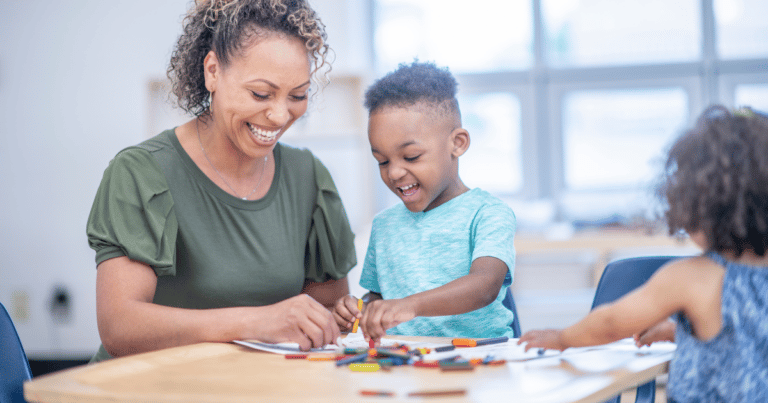
Along with social media’s popularity arose issues that our children encounter every day. Those challenges include depression, bullying, and screen addiction. Poor mental health is one of the largest issues facing our society today, with one in seven young people aged 4-17 experiencing a mental health problem in any given year. (“Children and young people: statistics”)
As a single mother, I understand the importance of nurturing my child's physical and emotional well-being in every possible way. One powerful tool that has significantly impacted my child's health and happiness is gratitude journaling. This practice helps children get in touch with their feelings and acknowledge them by writing them down. If this is the first time you have read about it, this article will tell you everything you need to know about gratitude journaling and how it can boost your child’s health.

What is gratitude journaling?
Gratitude journaling is a practice in which individuals write down things they are thankful for in life. Its main goal is to focus on and express appreciation for life's positive aspects. It involves writing down things one is grateful for each day and reflecting on positive experiences.
Benefits of gratitude journaling on children
I have witnessed firsthand the positive effects of gratitude in my son’s life. I remember one particularly challenging day when he was feeling frustrated. Instead of dwelling on the negative, we sat down together with his gratitude journal. We started listing things he was thankful for, from his favourite stuffed animal to the comforting warmth of his bed. I could see his mood shift with each entry. By the end of our session, he was smiling again.
According to Mayo Clinic, a positive mindset, fostered through gratitude practices, can enhance the body's ability to fight off common ailments like the flu and cold. Also, in the research Advances in Psychiatric Treatment, it was found that expressive writing, such as journaling, can improve immune system functioning, decrease the risk of illness, and enhance overall emotional health in individuals who did it for 20 minutes per day on 3-5 occasions.
Speaking of emotional health, gratitude journaling provides children with a safe space to express their feelings and reflect on the good things in their lives. Children need to develop resilience and gratitude as coping mechanisms in a world filled with distractions and pressures. By acknowledging and appreciating the positives, they can deal with life's ups and downs with greater ease.
Lauren, a single mother who runs a bakeshop near my workplace, expresses how much gratitude journaling helped her teenage daughter. She said her kid was devastated by the divorce and was always sick. As she was about to lose hope, the school counsellor recommended writing in a journal. Sure, there was reluctance and defiance at first, but nothing is impossible with a determined mama!

How to boost your child’s health through gratitude journaling
So, how did Lauren do it? She simply followed these steps.
- Introduce the concept: Explain to your child what gratitude means in simple terms. Help them understand that it's about noticing and appreciating the good things in life, no matter how small.
- Choose a journal: Together, select a journal that your kid likes. It could be a colourful notebook or a plain notebook they can decorate.
- Set regular times: Establish a routine for gratitude journaling, such as every morning or before bed. Consistency helps reinforce the habit.
- Encourage reflection: Prompt your child to reflect on their day and think about moments, people, or things they are thankful for. Ask questions like, "What made you smile today?" or "What was something nice someone did for you?"
- Start small: Initially, encourage your kid to list just one or two things they are grateful for each day. As they become more comfortable, they can add more entries.
- Lead by example: Model gratitude by sharing your entries with your child. This will show them that gratitude journaling is beneficial for people of all ages.
- Celebrate achievements: Acknowledge your child's efforts and progress in gratitude journaling. Celebrate milestones, such as completing a week or a month of entries, with positive reinforcement or a simple reward.
- Be supportive: If your child struggles to find things to be grateful for on a particular day, help them brainstorm or provide gentle prompts.
- Revisit entries: Revisit past entries with your kid from time to time. Reflecting on what they were grateful for in the past can reinforce positive memories and highlight their progress.
Further reading:10 Fun ways to practise gratitude with your children.
Other ways to boost your child’s health
In addition to gratitude journaling, there are other steps you can take to improve your child's health and well-being.
- Adequate sleep is crucial: According to their age, children should get the recommended hours of sleep each night. Sufficient sleep is crucial for their physical health, cognitive development, and emotional well-being.
- Support emotional health: Create a supportive environment where your child feels comfortable expressing their emotions. Encourage open communication, validate their feelings, and provide reassurance during challenging times.

- Encourage outdoor activities: Incorporate outdoor activities into your child's routine, such as going for a walk in nature or playing at the playground. Outdoor play promotes physical fitness, stimulates creativity, and supports emotional regulation.
- Provide nutritious meals: Ensure that your child eats a balanced diet rich in fruits, vegetables, whole grains, lean proteins, and healthy fats. Nutritious meals support overall health, growth, and development.
- Limit screen time: Set limits on your child's screen time, including television, computer, and mobile devices. Excessive screen time can impact both physical and emotional health as it interferes with sleep, physical activity, and social interactions.
- Practise mindfulness and relaxation: Teach your child simple mindfulness and relaxation techniques to help them manage stress and promote emotional well-being. This could include deep breathing exercises, guided imagery, or progressive muscle relaxation.
- Lead by example: Be a positive role model for your child by prioritising your own health and well-being. Demonstrate healthy habits, such as eating nutritious foods, staying active, managing stress effectively, and practising gratitude.
Summary: Gratitude Journaling to Boost Child’s Health
Gratitude journaling not only helped my son appreciate the good things in life but also improved his immune system. Now, he rarely gets sick, and whenever he is frustrated, he knows how to regulate his feelings without my help. So, I encourage every parent to incorporate this practice into their family's routine.
Remember, every child is unique, so it's important to tailor the steps to your kid’s individual needs and preferences. Be flexible and open to adapting the practice to suit what your kids need and want. As they grow and develop, they may prefer approaching gratitude journaling in different ways.
And for us mums, when the day is done, take the time out to connect with your own feelings. Think back to the details of your day—it’s often the little things, such as tucking your child up in bed, having that last cuddle, or remembering a funny story, that can help us unwind and settle back—until we do it all again the next day!














